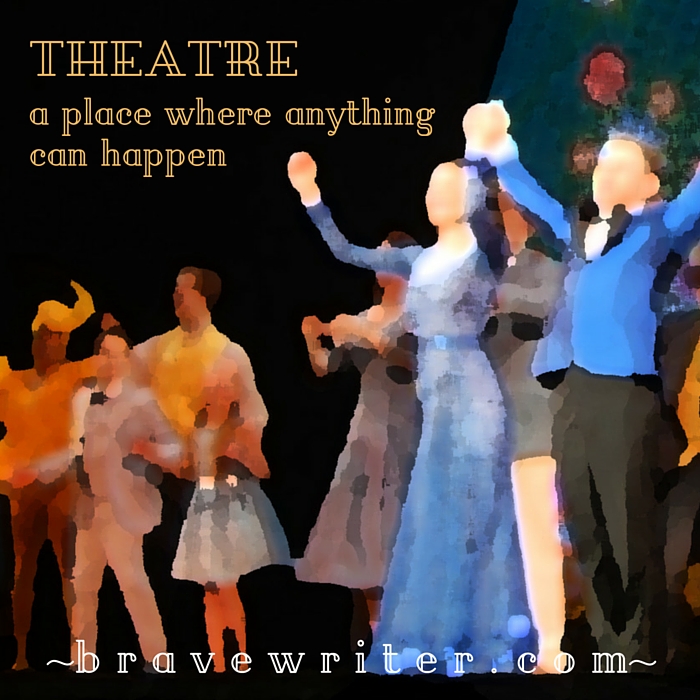
The Georgian Theatre Royal
In the heart of England, in the Yorkshire Dales, amid the shops and supermarkets of Richmond, lies the Georgian Theatre Royal. It doesn’t look much: a small building between a hotel and a pub, hemmed in by a chemist and a bakery on the other side. But creep down the cobbled alleyway and heave open the solid stage doors… and wonders are waiting inside.
The soft, black curtains swish around the sturdy planks of the stage, which creak as actors step on them. There is a constant hush around the dark corners behind the curtains; the air is thick with the smells of dust and excitement.
Deep in the theatre’s belly there is row upon row of exotic costumes. Coarse fake beards that have tickled a hundred chins; strange felt hats, pointing forward like giant ravens’ beaks; billowing capes of crimson with mysterious designs stitched into them; dresses that went out of fashion two hundred years ago. I’ve worn green and yellow waistcoats that clash spectacularly under the spotlights, and bright blue trousers with golden rosettes sewn on.
It’s crowded behind the curtains and uncomfortable when you’re jostling for space with half a dozen other actors. It’s not much better in the dressing rooms – every surface is strewn with clothes and scripts, and there’s usually only a couple of chairs. The floor gets saturated whenever it rains, and the lights overheat if left on too long. It’s a battered old building, it’s true, but within it we can create entire worlds that last for a few hours at a time, then burst like soap bubbles.
High in the rafters, countless beams and metal poles illuminate me with their glaring lights. The audience is a sea of unpredictable darkness. Will they laugh at the jokes? Will they sit in silence? I feel tiny on stage, someone else’s words on my lips – but then they laugh and I feel like a giant again.
I’m thirteen. I’m standing in a pool of blue light, dressed in black, eyes filled with defiance in the face of defeat. I raise my arm as I deliver my monologue. The audience is silent, but I can feel hairs standing on end. It’s an electric moment.
I’m fourteen. I’m bursting with adrenaline, as I’ve just kicked another boy to death. The other characters stare at me, appalled, but I don’t care. Fifty seconds later and I hit the ground myself, the hero’s knife in my stomach. There is silence.
I’m fifteen. I’m in a crowd of international teenagers in white and red – we’re chess pieces. And we’re dancing. Left, right, forwards, backwards, hands thrust up to the ceiling, shimmying and spinning and loving every second, music bursting all around us.
I’m sixteen. I’m dressed in a seventeenth-century coat, mostly hidden by a bright red tabard that makes me look like a playing card. I draw my sword and snarl an insult. Three heartbeats later and I’m in the centre of a bloody duel. All of my comrades fall and I have to dash off stage, hat and dignity both gone. Why do the heroes always win?
It’s addictive – the thrill, the nerves, the glory of holding an audience spellbound. Come into our world, we say, conjuring realms in our wooden O. Quite simply, it’s magic.
This is a place where anything can happen. If you have the patience to sit upon the unforgiving hard seats for a few hours, magic will unfold before your eyes.
At the Georgian Theatre Royal, everyone is ever so slightly mad – but it’s a place where everyone is accepted. This is a place where I belong.
















